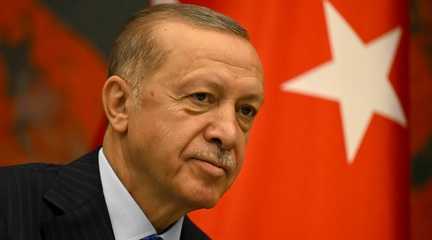
by Motasem A Dalloul
Turkish President Recep Tayyip Erdogan won another term in office after receiving 52.14 per cent of the votes in the presidential election on Sunday, defeating his rival Kemal Kilicdaroglu in the runoff election.
Winning this election, Erdogan, a conservative Islamist leader, has started a third decade of ruling Turkiye, which has become a key regional and international player in the fields of politics, diplomacy, gas trade and defence industries.
Outside the presidential palace in Ankara, Erdogan addressed thousands of supporters who gathered to celebrate his victory, saying: "We are not the only winners, the winner is Turkiye. The winner is all parts of our society, our democracy is the winner… Now, it is the time to put aside all the debates and conflicts regarding the election period and unite around our national goals and dreams."
"No one lost. All 85 million people have won as a result of the responsibility given to us by our people."
Erdogan saluted his supporters and thanked them, while sending assurances to his political opponents and their supporters that he is not "offended, resentful or angry" with them as they insulted him and his supporters during the elections, lied to people, downplayed his achievements and accused him of being a dictator.
However, the BBC's Anna Foster said that for those who hoped to end "authoritarian Turkiye, the opportunity was lost." While Channel 4's Europe Editor Matt Frei referred to Erdogan in his first report to BBC 4 after Erdogan's victory "as the model of autocrats around the world." Frei accused him of dividing the Turks into two camps: "those who are with him and those who are against him."
Almost all Western media outlets took aim at Erdogan following his victory, as did news organisations in Arab countries which are allies of the US and Western governments. These same bodies overlooked Kilicdaroglu's racism and did not highlight how he was trading the suffering of vulnerable refugees with votes.
These blind people put aside the dark times Turkiye had and the Turks experienced under the secularists, including the military coups, racism, lack of political and religious freedoms, the very bad economy and very bad education and healthcare systems. At the same time, they ignored the qualitative progress Erdogan achieved in all fields and how he improved the country's economy, which before his rule was among the worst in the world.
READ: Turkiye-Arab relations to flourish with Erdogans re-election: Experts
According to the World Bank: "Turkiye's performance since 2000 has been impressive. Macroeconomic and fiscal stability were at the heart of its performance, enabling increased employment and incomes and making Turkiye an upper-middle-income country. Poverty incidence halved over 2002–12, and extreme poverty fell even faster. During this time, Türkiye urbanized dramatically, opened up to foreign trade and finance."
Erdogan himself holds a degree in economics and has worked in this field. He pays attention to all the ongoing economic problems in the country and has an economic reform plan based on lowering the interest rate and reencouraging a real economy based on productivity and the fair sharing of wealth.
Turkiye is becoming a hub of international gas markets in addition to its massive gas discoveries in the Black Sea.
The anti-Erdogan propagandists concentrated on the domination of Erdogan and his loyalists on state institutions and resources and how they were used to serve Erdogan's electoral campaign. They also concentrated on false claims that he did not respond properly to areas hit by the devastating 6 February earthquakes.
But these people appear unaware of the fact that there 530 TV channels in Turkiye and the government owns a very few number. Most of the most widely viewed and read media outlets are privately owned. If the anti-Erdogan propagandists suggest that these media outlets have close ties with the government, this remains an unfounded claim.
Meanwhile, the Radio and Television Supreme Council (RTUK), which monitors, regulates and sanctions the media, is similar to the bodies that operate in other countries and holds the media accountable to certain standards and codes of conduct.
As for the response to the earthquakes, Erdogan's government provided hundreds of displaced families in the Dafna district of Hatay new housing within 60 days of the tremors. This was unprecedented.
Erdogan respects his country, his people and his principles. He is also proud of his religion. He is not happy to give false promises or tell lies or to bargain his principles, morals and religion for millions of votes.
READ: Erdogan vows to settle EU discriminatory visa system for Turkiye
He was clear that he does not believe in the separation between the mosque and the state, morals and politics, religion and the economy, independent decisions and flexible foreign policy. Such strength and stability pushed Russian President Vladimir Putin to consider him a close ally at a time when he is selling drones to Ukraine to target Russian troops.
His strength and stability led US President Joe Biden, who has repeatedly said Erdogan must be ousted and whose administration has been helping terrorist Kurdish militias in northern Syria attack Turkish forces, to tweet: "I look forward to continuing to work together as Nato allies on bilateral issues and shared global challenges."
This content was published in Middle East Monitor on June 01, 2023. To restrict the overall size; some images may have been excluded.
Opinions expressed in this article are the author's own and do not necessarily reflect the views of UMMnews.




